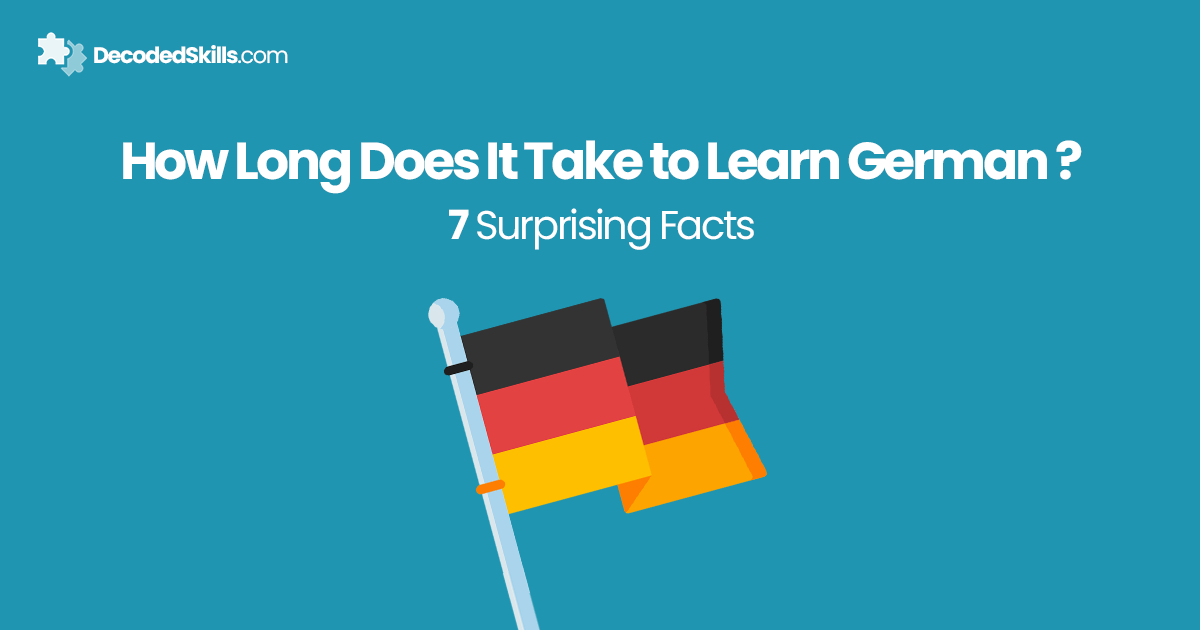Table of Contents
Starting a new language can feel overwhelming. Many wonder: Is French hard to learn? It’s important for beginners to know what to expect.
Some might think French is too hard because of its reputation. But, with the right tools and mindset, you can beat the early challenges. You’ll find learning French rewarding.
When you begin, remember that how fast you learn French depends on you. Your past experience with languages and how much you study matter a lot.
Key Takeaways
- French can be a challenging language to learn, but with the right mindset, it’s achievable.
- Your pace in learning French depends on your experience and how you study.
- Grasping how French sentences are structured is essential for becoming fluent.
- Immersion and consistent practice are key to improving your French skills.
- Beginners should start with the basics and build a strong foundation.
The Truth About French Difficulty
Is French a hard language to learn? The answer depends on its unique features. French is seen as tough, but its difficulty varies.
How French Compares to Other Languages
While French has its challenges, English speakers may notice some helpful similarities. The two languages share a lot of similar words, making French easier to pick up. For example, “nation” and “education” look and sound alike in both languages.
| Language Feature | French | Spanish | German |
| Grammar Complexity | High | Medium | High |
| Cognates with English | 28% | 30% | 22% |
| Pronunciation Difficulty | Medium | Low | High |
The Foreign Service Institute Classification
The Foreign Service Institute (FSI) rates languages by difficulty for English speakers. French is considered as a Category I language, meaning it’s fairly simple. It takes about 24-30 weeks (600-750 class hours) to become proficient.
Knowing the FSI classification helps estimate the time needed to learn French. While French has its challenges, it also offers cultural benefits and career opportunities.
1- Is French Hard to Learn? Factors That Affect Difficulty
Learning French is different for everyone. It depends on several factors. Knowing these can help you see what you might find hard or easy.
Your Native Language Background
What you already speak can make a big difference. If you speak a Romance language like Spanish or Italian, French might be easier. This is because Romance languages share many words and grammar rules.
Previous Language Learning Experience
Learning other languages can help with French. If you’ve learned a language with tricky grammar or sounds, French might seem simpler. For example, knowing German can help with French grammar.
Your Learning Style and Commitment
How you learn and how much time you put in is very important. Watching French movies or talking with native speakers can really help. It’s better to study a little bit every day than to study a lot all at once.
| Factor | Description | Impact on Learning |
| Native Language Background | Similarity to French in grammar and vocabulary | Romance languages may find it easier due to cognates |
| Previous Language Learning Experience | Experience with complex grammar or pronunciation | Can make certain aspects of French more manageable |
| Learning Style and Commitment | Immersion techniques and consistency | Regular practice and immersion enhance learning |
2- The Easiest Aspects of Learning French
Learning French might be easier than you think. While starting a new language is always a challenge, French has some features that make it simpler. Knowing these can boost your confidence as you start your French journey.
Familiar Vocabulary and Cognates
Having many similar words in both languages makes French easier to learn. These are words that look alike in English and French due to shared Latin roots. For example, restaurant, hotel, and café are the same or very close in both languages. About 28% of French words have English cognates, making it easier to learn new words.
- Cognates: Words like “action” (action), “education” (éducation), and “nation” (nation) are the same or very similar.
- Loanwords: French has adopted English words, especially in modern contexts like technology and fashion.
Logical Grammar Structure
French grammar might seem complex, but it’s actually quite logical. The language has clear rules that, once you get them, you can apply them widely. For example, regular verb conjugations follow predictable patterns. This makes learning how to conjugate verbs easier.
Also, while French sentence structure is different from English, it’s generally straightforward. You can learn to build sentences using a subject-verb-object word order, similar to English.
- Verb Conjugations: Regular verbs use a clear pattern, which makes them simpler to learn.
- Sentence Structure: French usually follows a clear subject-verb-object format, much like English.
3- The Most Challenging Parts of French for Beginners
Starting with French can be tough, with tricky pronunciation and grammar rules. French is a beautiful language, but it takes effort to get past these early obstacles. Let’s look at the biggest challenges beginners face.
Pronunciation and Nasal Sounds
French is known for its nasal sounds, which can be hard to get right. For example, the “on” sound in “mon” or the “an” sound in “chant” are unique. Practicing these sounds is essential for getting better at French.
Grammatical Gender and Articles
French nouns come with a gender, masculine or feminine, that affects the form of articles and adjectives used. Mastering gender patterns and choosing proper articles (“le” versus “la,” “un” versus “une”) is essential for composing clear, accurate sentences.
Complex Verb Conjugations
French verbs change form based on tense, mood, and subject pronoun. Begin by focusing on the most frequent verb conjugations to simplify learning. Regular practice, like writing or speaking, will help you get better.
By tackling these tough parts, you’ll be ready to handle French’s complexities. This will boost your French skills.
4- How Long Does It Take to Learn French?
Starting your French learning journey? It’s key to know how long it takes to get good at it. The time needed to learn French varies. It depends on your native language, past learning, and how much you study.
Beginner Level (A1-A2): First 3-6 Months
At the beginner level, you’ll spend 3-6 months learning the basics. You’ll learn common phrases, vocabulary, and grammar. This is a vital time to lay the groundwork for more learning.
Intermediate Level (B1-B2): 1-2 Years
Getting to the intermediate level takes 1-2 years of hard work. You’ll start to understand complex texts and hold conversations. You’ll also get better at expressing your thoughts.
Advanced Level (C1-C2): 3-5 Years
Reaching an advanced level takes 3-5 years of focused learning. At this level, you’ll grasp demanding texts and speak fluently. You’ll be able to express yourself clearly and have detailed conversations.
5- Effective Strategies for Learning French Faster
To learn French quickly, you need the right methods and regular practice. It’s key to surround yourself with the language, use memory tools, and talk with native speakers or language exchange partners.
Daily Immersion Techniques
Make French a part of your daily life. Listen to French music, watch French movies or TV shows, and set your phone to French. Try cooking French recipes and following French instructions. These activities will help you get used to the sounds, rhythms, and grammar of French.
Spaced Repetition and Memory Techniques
Spaced repetition is a powerful technique for mastering vocabulary and grammar fundamentals. Use flashcards or apps like Anki to review material at longer intervals. This method helps you remember information better, making it easier to recall when needed.
Finding Conversation Partners
Talking with native French speakers or language exchange partners is vital for improving your speaking skills. Look for conversation partners on language exchange websites, social media, or local meetups. Regular conversations will boost your confidence and make you more comfortable using French in real-life situations.
Best Resources for Beginning French Learners
Starting to learn French can be exciting. It’s important to find the right tools to help you. There are many resources out there to make learning fun and effective.
Beginners can check out various apps and online platforms. Duolingo, Babbel, and Rosetta Stone are great for interactive lessons. These apps guide you to build your French skills gradually.
Apps and Online Platforms
Duolingo and Babbel offer fun lessons and quizzes. They also have speech recognition to help with your pronunciation. These apps let you learn whenever it works best for you.
Books and Audio Programs
If you like books and listening, there are many options. You can find textbooks, phrasebooks, and audiobooks for all levels. “French in Action” and “Pimsleur French” are favorites for beginners.
Classes and Language Exchange Opportunities
Taking a class or speaking with a language partner works well. It helps you practice speaking and get feedback. Look for local schools, online courses, or websites for language exchange.
Conclusion: Is French Worth the Effort?
You now understand the challenges and benefits of learning French. The question is, is French hard to learn and is it worth it? The answer to the first part depends on your native language and past experience with languages. But, the journey is rewarding.
Learning French lets you explore new cultures, makes traveling better, and can help your career. It might take 3-6 months to start or 3-5 years to be fluent. But, it’s a great investment in yourself. With regular practice and the right tools, you can beat the challenges and enjoy the benefits of speaking French.
Each step gets you nearer to your goals. Stay consistent, keep parcticing, and let your mistakes fuel your progress. With hard work and determination, you’ll find learning French is not just possible but also very enriching.
FAQ
How long does it take to learn French?
The time to learn French depends on many factors, like your first language, past experience, and how fluent you want to be. Generally, beginners can learn in 3-6 months. Intermediate learners take 1-2 years. Advanced fluency might take 3-5 years.
Is French a hard language to learn?
French can be tough, but its difficulty varies by learner. Grammar and pronunciation might be hard. Yet, French’s logical structure and familiar words can help.
How long would it take to learn French if I’m a native English speaker?
As an English speaker, French might seem easier. You’ll find many similar words. Beginners can reach a basic level in 3-6 months. Intermediate in 1-2 years. Advanced fluency in 2-4 years.
What is the most challenging part of learning French?
Pronunciation, especially nasal sounds, can be hard. Also, French has grammatical gender and complex verb forms. But, with effort, you can master these.
How can I learn French faster?
To speed up progress, include French in your everyday activities. Listen to music or watch movies. Use spaced repetition and memory aids. Find someone to practice speaking with.
What are the best resources for learning French?
Top resources include apps, online platforms, books, audio programs, classes, and language exchange. Pick what suits your learning style and goals.
How long to learn French to become fluent?
Fluency in French takes 3-5 years of regular practice. But, this time can change based on your effort and goals.





